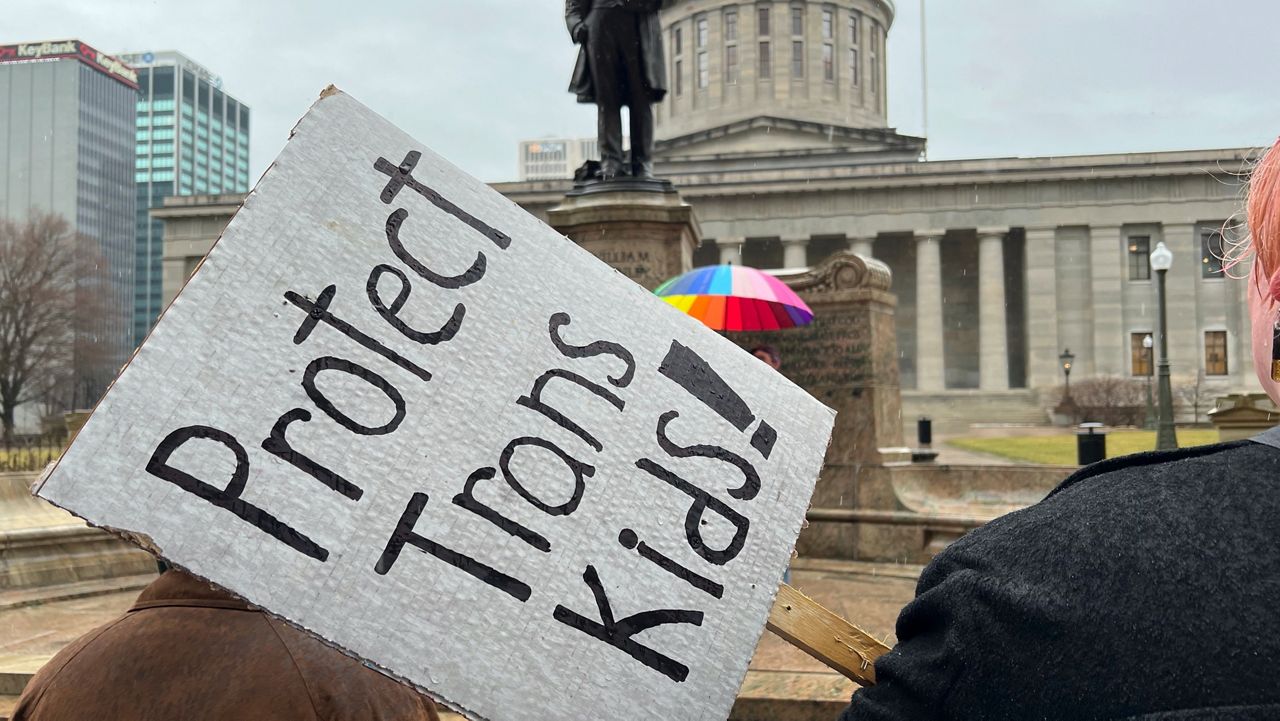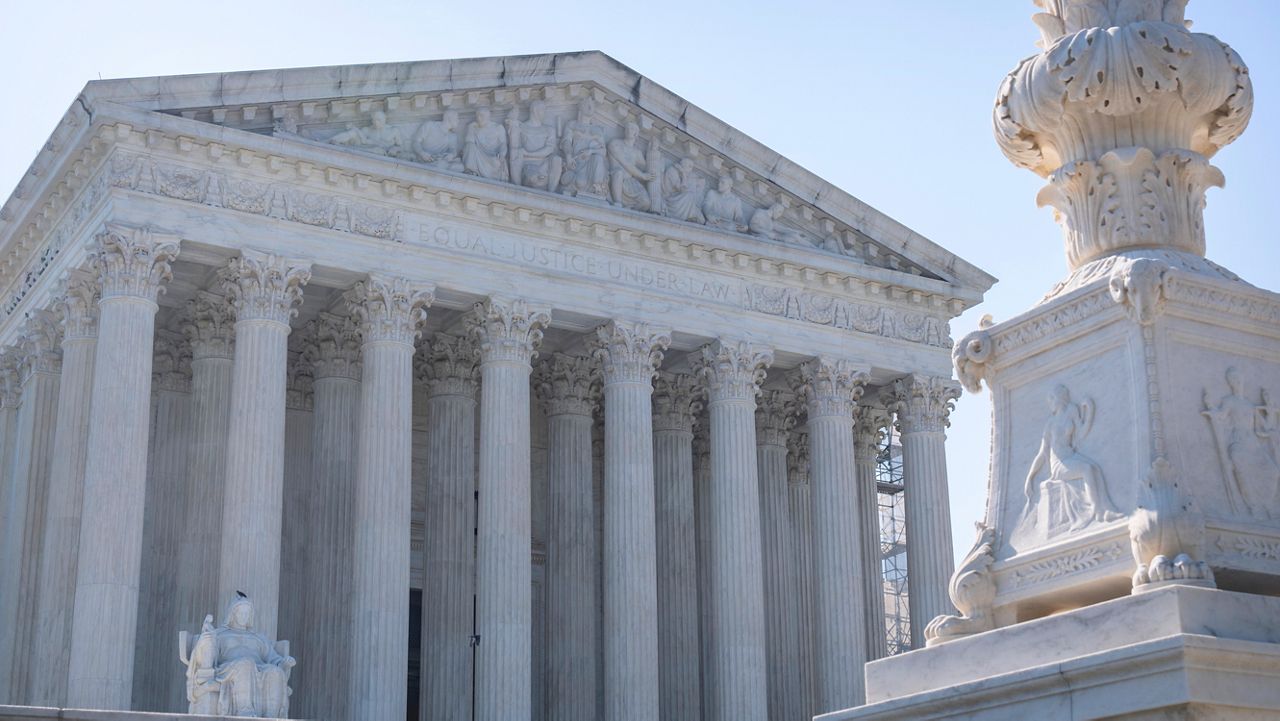A school board in Tennessee voted to remove “Maus,” a Pulitzer-Prize winning graphic novel about the Holocaust, from its eighth-grade English language arts curriculum, sparking outrage.
The move comes amid a wave of efforts, largely in Republican-led states, to limit teaching racial history. The news was first reported by the Tennessee Holler, a local outlet.
“Maus,” published between 1980 and 1991 in a serialized format, depicts cartoonist Art Spiegelman interviewing his father, Vladek, a Holocaust survivor, about his experiences, from the rise of anti-Semitism in Europe and the Nazi invasion of Poland to his eventual liberation from Auschwitz concentration camp.
The critically acclaimed comic depicts different ethnicities as anthropomorphic animals — Jews are depicted as mice, Germans are cats, Americans are dogs.
The book deals with a number of heavy, difficult topics, including the death by suicide of Spiegelman’s mother, Anja, also a Holoaust survivor.
In 1992, Maus became the first and only graphic novel to win the Pulitzer Prize, one of the most prestigious awards in publishing.
Minutes from a Jan. 10 meeting of the McMinn County Board of Education, which came to light Wednesday, showed that the board voted unanimously to remove the graphic novel, objecting to a number of instances of profanity in the book, as well as the depiction of a nude woman. The depiction in question is the dead body of Spiegelman's mother, Anja.
Lee Parkison, the county’s director of schools, opened the meeting by addressing the board: “There is some rough, objectionable language in this book and knowing that and hearing from many of you and discussing it, two or three of you came by my office to discuss that.”
Parkison said that they decided “the best way to handle” those concerns was to redact eight swear words and the depiction of a nude woman.
Board member Tony Allman put it bluntly, according to the minutes of the meeting: “We don't need to enable or somewhat promote this stuff. It shows people hanging, it shows them killing kids, why does the educational system promote this kind of stuff? It is not wise or healthy.”
Allman later went on to reference that Spiegelman “used to do the graphics for Playboy” — while Spiegelman did do freelance cartoon work for the magazine, it is unrelated to his work on “Maus.”
“You can look at his history, and we’re letting him do graphics in books for students in elementary school. If I had a child in the eighth grade, this ain’t happening,” Allman continued. “If I had to move him out and homeschool him or put him somewhere else, this is not happening.”
“I was a history teacher, and there is nothing pretty about the Holocaust, and, for me, this was a great way to depict a horrific time in history,” instructional supervisor Julie Goodin rebutted. “Mr. Spiegelman did his very best to depict his mother passing away and we are almost 80 years away. It’s hard for this generation, these kids don’t even know 9/11, they were not even born. For me this was his way to convey the message.”
“Are the words objectionable? Yes,” she continued. “There is no one that thinks they aren’t. but by taking away the first part, it’s not changing the meaning of what he is trying to portray and copyright.”
“People did hang from trees, people did commit suicide and people were killed, over six million were murdered, Melasawn Knight, another instructional supervisor, added. “I think the author is portraying that because it is a true story about his father that lived through that. He is trying to portray that the best he can with the language that he chooses that would relate to that time, maybe to help people who haven't been in that aspect in time to actually relate to the horrors of it.”
“I am not denying it was horrible, brutal, and cruel. It's like when you're watching TV and a cuss word or nude scene comes on it would be the same movie without it,” Allman said. “Well, this would be the same book without it.”
“I went to school here thirteen years. I learned math, English, Reading and History. I never had a book with a naked picture in it, never had one with foul language, fellow board member Mike Cochran added. “So, this idea that we have to have this kind of material in the class in order to teach history, I don't buy it."
"I’m kind of baffled by this," Spiegelman told CNBC on Thursday. "It’s leaving me with my jaw open, like, ‘What?’”
Spiegelman called the decision "Orwellian" and lamented the fact that he's met "so many young people" who have expressed to him that they "learned things from my book."
"It has the breath of autocracy and fascism about it," Spiegelman said on CNN Thursday.
"I'm trying to, like, wrap my brain around it," the award-winning cartoonist told CNN, adding: "I think they're so myopic in their focus and they're so afraid of what's implied and having to defend the decision to teach 'Maus' as part of the curriculum that it lead to this kind of daffily myopic response."
Addressing the nudity, which Spiegelman described as a "tiny image" which depicted his mother's suicide, the cartoonist told CNN that "you have to really, like, want to get your sexual kicks by projecting on it."
Comics industry professionals and other notable figures expressed their outrage online.
"There’s only one kind of people who would vote to ban Maus, whatever they are calling themselves these days," said Neil Gaiman, acclaimed author of "The Sandman," "American Gods" and "Coraline."
"When you’re banning books, you’re on the wrong side of history," Brad Meltzer, the New York Times best-selling novelist who authored "Justice League of America" for DC Comics, wrote on Twitter. "Any great librarians or teachers from this community, let me know if we can help get you books."
Others echoed the sentiment of donating copies of "Maus" to people in McMinn County, including screenwriter Gary Whitta, who developed the story for "Rogue One: A Star Wars Story."
"Maus is one of—if not the—greatest works of graphic storytelling ever. It is horrifying and beautiful, bombastic and subtle, universal and yet incredibly personal," Tom King, writer of "Batman" for DC Comics, posted to Twitter. "It should be read and it should be taught."
"This story, appearing on International Holocaust Remembrance Day, is tragic," Sen. Tim Kaine, a former Vice Presidential candidate, wrote on Twitter. “'Maus' is a classic and should be read by as many as possible. And yes, it will make any reader deeply uncomfortable, as great art often does."
"Maus is a masterpiece and Art Speigelman is a rare talent," former New York mayoral candidate Maya Wiley wrote. "This is crazy and also demonstrates just why we cannot let fear or hate divide us."
"Maus has played a vital role in educating about the Holocaust through sharing detailed and personal experiences of victims and survivors," the U.S. Holocaust Memorial Museum wrote on Twitter. "On the eve of International #HolocaustRemembranceDay, it is more important than ever for students to learn this history."
The school board did discuss redacting certain portions of the book, but opted to pull the book entirely after expressing concern about violating copyright law.
“Mr. Bennett, you’re telling me there is no way we can remove every letter of foul language, and every piece of the graphic that would incite or offend?” asked board member Rob Shamblin.
“think if you remove part of the words so that you can still see what’s there, but it’s not the whole word, I think you’re within the bucket of Fair Use,” board member Scott Bennett replied. “I think as you start to edit it for contents, more and more and more you get further from that umbrella of Fair Use.”
“We could contact the author and ask for permission to do further redaction. If the author gives us permission, then we can do whatever we want with it. That would be unusual, but it’s not unheard of,” Bennett later elaborated, shortly before the board’s 10-0 vote to remove the book.
In a statement issued to Spectrum News, the McMinn County Board of Education said that they removed the acclaimed graphic novel "because of its unnecessary use of profanity and nudity and its depiction of violence and suicide," calling it "simply too adult-oriented for use in our schools."
"We do not diminish the value of Maus as an impactful and meaningful piece of literature, nor do we dispute the importance of teaching our children the historical and moral lessons and realities of the Holocaust," the statement continues. "To the contrary, we have asked our administrators to find other works that accomplish the same educational goals in a more age-appropriate fashion. The atrocities of the Holocaust were shameful beyond description, and we all have an obligation to ensure that younger generations learn of its horrors to ensure that such an event is never repeated."
"We simply do not believe that this work is an appropriate text for our students to study," the statement concludes.
This article has been updated to reflect comment from the McMinn County Board of Education.









